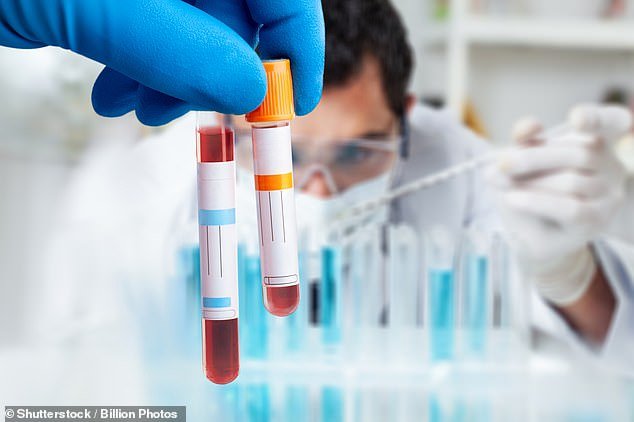The dangerous STI sweeping Australia as cases skyrocket – and 80 per cent of them are men: ‘This is extremely serious’

The dangerous STI sweeping Australia as cases skyrocket – and 80 per cent of them are men: ‘This is extremely serious’
Australia is facing a growing sexual health crisis as cases of syphilis surge to record levels.
Experts have warned the infection is not only spreading rapidly among men but also increasingly threatening women and newborn babies too.
The latest figures from UNSW’s Kirby Institute revealed 5,866 diagnoses of syphilis in 2024, which is double the number just a decade ago.
Worryingly, while 80 per cent of cases were among men, diagnoses among women have quadrupled in the same period, sparking fears for those of childbearing age.
‘If untreated in pregnancy, infection can lead to miscarriage or stillbirth, or congenital syphilis, which is when the infection is transmitted to an unborn child,’ said lead researcher Dr Skye McGregor, an epidemiologist at the Kirby Institute.
‘Congenital syphilis is an extremely serious condition for infants that can result in significant lifelong health impacts, and, in the most severe cases, can be fatal.’
Since 2015, congenital syphilis cases have more than doubled in Australia, with 34 infant deaths linked to the infection.
Australia’s Chief Medical Officer Professor Michael Kidd has now declared syphilis a Communicable Disease Incident of National Significance – an unusual step that highlights the scale of the problem.
Australia is facing a growing sexual health crisis as cases of syphilis surge to record levels, especially in men
‘By raising awareness among Australians – including healthcare professionals – we will help ensure more people get tested and treated for syphilis, so we can stop the spread of the disease,’ he said.
However, others like Jessica Michaels, Deputy CEO of the Australasian Society for HIV, Viral Hepatitis, and Sexual Health Medicine, said tackling the epidemic will require far more than just awareness campaigns.
‘The syphilis epidemic will need a sustained and coordinated response to resolve, from government, researchers, the clinical workforce and the community.’
One of the biggest dangers with syphilis is that many people don’t realise they have it.
Early symptoms can include painless sores or ulcers on the genitals or mouth, skin rashes, swollen glands and flu-like symptoms – but in some cases, people don’t notice any signs at all.
If left untreated, the infection can spread through the body and cause serious complications affecting the heart, brain and nervous system.
The good news is that testing is simple and widely available across Australia – usually just a blood test at your GP, sexual health clinic or community health service.
Treatment is straightforward too. A course of antibiotics, most commonly penicillin, cures the infection completely if caught early.
The latest figures from UNSW’s Kirby Institute revealed 5,866 diagnoses of syphilis in 2024, which is double the number just a decade ago
But doctors stress that the longer syphilis is left untreated, the greater the risk of lasting damage.
It’s not just one STI on the rise. The report also showed gonorrhoea diagnoses hit 44,210 last year, which has doubled over the past 10 years.
Around 70 per cent of cases were among men, with researchers pointing to sexual transmission between men as a key driver.
‘The disproportionately high number of gonorrhoea diagnoses among men compared to women indicates more frequent transmission through male-to-male sex,’ explained Professor Andrew Grulich, head of the HIV Epidemiology and Prevention Program at the Kirby Institute.
Meanwhile, chlamydia remains the most common STI in Australia, particularly among young adults aged 20-29
He adds that a combination of highly effective HIV prevention strategies and a decline in condom use is likely fuelling the spread.
Meanwhile, chlamydia remains the most common STI in Australia, with more than 101,000 cases in 2024 – particularly among young adults aged 20-29.
‘Although chlamydia diagnoses are not increasing at the same pace as syphilis or gonorrhoea, it is still the most common STI in Australia,’ said Dr McGregor.
‘If you are sexually active, particularly with a new partner, STI testing is crucial.
‘A test for chlamydia is very straightforward, and the treatment is usually a single dose of antibiotics.’
In contrast to other STIs, HIV diagnoses are falling, with a 27 percent decline over the past decade. But experts warn complacency could put decades of progress at risk.
‘While numbers of new HIV diagnoses are consistent with a decline over the past decade, there’s still much more to do to achieve the virtual elimination of domestic HIV transmissions in Australia by 2030,’ said Scott Harlum, President of the National Association of People with HIV Australia.
Testing can be as simple as a blood test or swab at GPs and health clinics, with most STIs, including syphilis and chlamydia, cured with antibiotics if caught early
Dr McGregor cautions that while HIV is not curable, ‘diagnosis and starting effective treatment early prevents poor health outcomes and interrupts onward transmission.’
Still, troubling gaps remain. Almost one-third of people diagnosed in 2024 were considered ‘late diagnoses’, meaning they may have unknowingly lived with the virus for years. Among heterosexuals, more than half of diagnoses were late.
While the rise in STIs is concerning, experts stress that Australia has the tools to turn the tide.
Regular testing, open conversations about sexual health and easy access to effective treatments mean these infections can be stopped in their tracks.
For gay and bisexual men, there is now an added option called doxy PEP, which is a new prevention measure involving taking the antibiotic doxycycline within 72 hours of sex to reduce the risk of syphilis and chlamydia.
{
“@context”: “https://schema.org”,
“@type”: “NewsArticle”,
“headline”: “[article_title]”,
“datePublished”: “2025-09-26 05:58:00”,
“dateModified”: “2025-09-26 05:58:00”,
“author”: {
“@type”: “Organization”,
“name”: “{source_domain}”
},
“publisher”: {
“@type”: “Organization”,
“name”: “UAE Today News”,
“logo”: {
“@type”: “ImageObject”,
“url”: “https://uaetodaynews.com/logo.png”
}
},
“mainEntityOfPage”: {
“@type”: “WebPage”,
“@id”: “https://www.dailymail.co.uk/femail/article-15135593/The-dangerous-STI-sweeping-Australia-cases-skyrocket-80-cent-men-extremely-serious.html?ns_mchannel=rss&ns_campaign=1490&ito=1490”
},
“isBasedOn”: “https://www.dailymail.co.uk/femail/article-15135593/The-dangerous-STI-sweeping-Australia-cases-skyrocket-80-cent-men-extremely-serious.html?ns_mchannel=rss&ns_campaign=1490&ito=1490”
}
Source Notice:
This article is republished from
www.dailymail.co.uk
on 2025-09-26 05:58:00.
Content and views belong to the original publisher, not UAE Today News.









